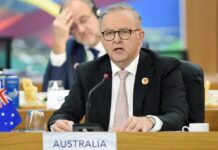North West Queensland eyes sustainable future

The Queensland Government has announced funding to support the implementation of the North West Queensland Regional Transformation Strategy.
Following extensive community, local government and industry consultation, the plan identifies key economic strengths and industry priorities based on the region’s unique geography, resources and workforce skills.
To kickstart the transformation, the Queensland Government will provide $22.05m from the $200m Regional Economic Futures Fund for 19 Queensland Government and council-led projects.
This includes $7.4m for TAFE to deliver renewable energy and critical minerals training, including via Queensland’s first Renewable Energy Training Truck and $750k for a co-designed investment plan to grow First Nations agriculture, bushfoods and botanicals.
Queensland State Development and Infrastructure Minister Grace Grace says regional Queensland has an important role to play in a low-emissions economy.
“We’ve worked closely with local governments, industry and the wider community to co-design and develop a Regional Transformation Strategy for North West Queensland, which is one of four priority regions,” she said.
“It outlines how the region can harness its world-class natural assets and agriculture industry and emerging renewable energy to create jobs and drive investment in industries that will thrive in a decarbonised world.”
Queensland State Development and Infrastructure Assistant Minister Julieanne Gilbert echoed these comments.
“Regional transformation is critical to achieving Queensland’s renewable energy and emissions reduction targets, and capitalising on our existing strengths to meet global demand for cleaner, greener and more responsibly sourced products,” she said.
“Funding is being allocated to projects that have been identified through regional consultation as those that will best support world-class, low-carbon economies.”






















